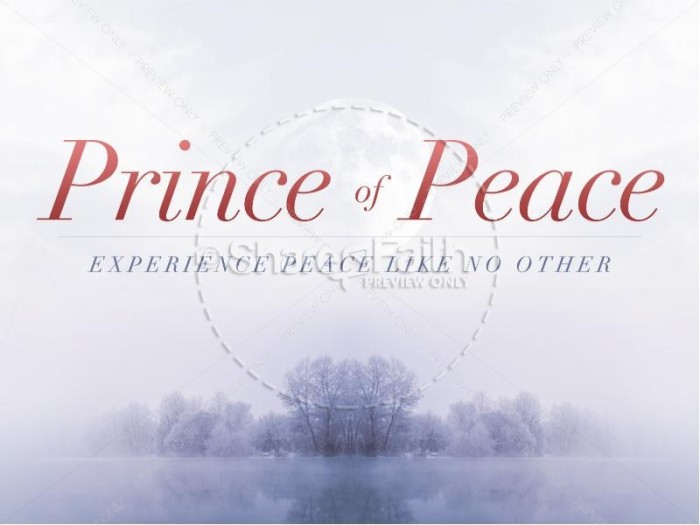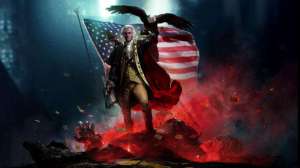I understand that what I write is not easy — but it’s also not my idea. I have been wrestling with the ideas of pacifism, non-violence, and the Christian’s role in politics since I came up out of the waters of baptism over a decade ago. I realize that my opinion will upset, offend, or disturb many, and I’m okay with that. However, it is too important and issue to not discuss and discourse. I am a man, not God – and I believe the Bible as His holy word. Read this with the understanding of, “He might be wrong.” Read your Bible, test the scriptures, and pray. But most importantly, let the Holy Spirit guide your convictions and beliefs, not traditions. With that being said, let us finish this series.
There is a part in the Gospel narratives that we’ve read many times but have a tendency to just skim through. It’s the part where the crowd chooses between Jesus and Barabbas. By tradition, Pilate freed one prisoner every year at Passover, so he asks the crowd to choose.
I can imagine (speculative) the behind-the-scenes drama that unfolds as Pilate and Caiaphas (the High Priest) converse on the situation and its solution. These two power players, one political, the other religious, needed each other. Despite their contempt for one another, the needed each other to maintain their positions of power. You’ll recall in the Gospels that Pilate had two very notable prisoners who were both condemned to be executed: Jesus of Nazareth and Barabbas. I can imagine Pilate asking Caiaphas which one should be released. At that moment, Caiaphas was presented with a choice. Let’s look at the two.
Barabbas was a famous, heroic Jewish patriot. He was willing to lead a war of independence against Rome. He was arrested for murder and inciting a riot to induce a violent revolution.
Jesus, in stark contrast, was a preaching the revolutionary idea of the peaceable kingdom of God that is founded on love and forgiveness.
Pilate admonished the High Priest to choose wisely. and then it is taken to the people for a final vote:
21 The governor again said to them, “Which of the two do you want me to release for you?” And they said, “Barabbas.” 22 Pilate said to them, “Then what shall I do with Jesus who is called Christ?” They all said, “Let him be crucified!” (Matt. 27:21-22, NIV)
The choice was made: the people and the Sanhedrin wanted a violent messiah, not a peaceful one. The wanted the freedom fighter to lead a revolt, not a Prince of Peace to bring restoration. In Bulgakov’s book, The Master and the Margarita, Bulgakov’s Pilate makes a shocking statement to Caiaphas in his retelling the story:
“Remember my words, High Priest: you are going to see more than one cohort here in Jerusalem! Under the city walls you are going to see the Fulminata legion at full strength and the Arab Calvary too. Then the weeping and lamentation will be bitter! Then you will remember that you saved Bar-Abba and you will regret that you sent the preacher of peace to his death!” (pg. 36)
That fictional Pilate reminds us of the historical reality: Just one generation after the crucifixion, Jerusalem finally got its war of independence…and it was left as a smoldering Gehenna.Forty years after the resurrection, Jerusalem was thrown head-long into a hell of Roman warfare and the ceaseless bombardment of roman Catapults that launched 100 pound payloads day and night. Most of the city died violently while some starved and the rest were enslaved.
However, in real-life it was not Pilate, but rather Jesus that told of this fate that was coming upon Jerusalem. That’s why we have this interesting verse as Jesus enters the city for Passover week:
41 And when he drew near and saw the city, he wept over it, 42 saying, “Would that you, even you, had known on this day the things that make for peace! But now they are hidden from your eyes. 43 For the days will come upon you, when your enemies will set up a barricade around you and surround you and hem you in on every side 44 and tear you down to the ground, you and your children within you. And they will not leave one stone upon another in you, because you did not know the time of your visitation.” (Luke 19:41-44, ESV)
1st Century Jerusalem rejected the Prince of peace and suffered horribly. The “city of peace” became a smoking heap of rubble “where their worm never dies and the fire is never quenched” (Mark 9:48). Their awful destiny could’ve been avoided, but only if they were willing to release their white-knuckle death grip on the pattern on violence and see the world through the eyes of God. History tells us of their choice, and sadly they clung to the old lie of Satan and the ways of Cain…and not one stone was left unturned in “God’s city.” In rejecting the Prince of peace, Jerusalem had gone to hell.
So what about you and me? Will we end any better? Do we recognize “the things that make for peace?” Do we recognize that Jesus is Immanuel? Do we have the audacity to believe the Prince of Peace of longs to lead his creation back to His peaceable kingdom?
At this point, I fear that we do not…not most of the time, anyway. It seems that we have buried our heads and cannot fathom the world that exists other than the way it does today. Our own imaginations have been commanded and hijacked by the principalities and powers of this dark world. As Walter Brueggemann describes it:
“Our culture is competent to carry out almost anything and imagine almost nothing.”
So here we are…twenty centuries after Caiaphas, who for the sake of his nation, and Pilate, who for the sake of his empire, condemned the Prince of peace to death in favor of retaining the things as they are and normalcy of violent revolution and militaristic empire.
And where are we at? Wars continue to define us. Freedom remains a euphemism for the power to conquer and kill. Violence is still seen as a legitimate way of changing the world…and I suggest all of this is nothing more than an outright betrayal of Jesus and his ideas.
But I am still holding out hope. How? Because Jesus’ story is still told. On that Friday twenty centuries ago, the representative of the superpower ideology and the high priests of the cooperative religion rejected Jesus. He was condemned, sentenced, tortured, crucified, and pronounced dead and buried in a cemetery that bore the official Imperial Seal of Rome. But that’s not the end…
That Sunday the ideas and ideals of the Prince of Peace were vindicated through the Resurrection! The Resurrection changes everything! If Jesus had stayed in the grave with its seal of Rome, Jesus’ ideas would’ve died with Him. But the resurrection changed everything! Easter Sunday is the ultimate and tangible manifestation of the triumph of the peaceable Kingdom of Christ. Easter redeems it all.
Isn’t it time that we let go of our assumed agreements with Pontius Pilate, Caiaphas, and their worn-out, death-dealing ideas? Isn’t it time we took very seriously the revolutionary, life-changing, life-giving ideas of Jesus – the Christ – the One whom God raise from the dead and declared to be Lord and Christ? Isn’t it time we became as children and used our imagination to once again imagine the radical otherness of the Kingdom of God? Isn’t it about time that we realize that the peaceable Kingdom of God starts here and not and isn’t reserved for the ethereal “sweet by and by?”
The American Church especially could benefit from a fresh look, maybe even for the first time, of Jesus being liberated from the lens of militaristic empire and its chaplaincy religion.
I know. At this point you’re thinking, “I can’t do this! I can’t rethink or question what I have been taught as long as I have been alive? I can’t rethink everything I’ve ever believed about patriotism, apple pie, freedom, and “God Bless America.”
Sure you can. I am. And it’s not easy. Many will call you crazy. unlearned in the Scriptures, wrong, or dismiss you…but reeber…they dismissed Jesus too. Once you extricate Jesus from subservience to a nationalistic agenda, you can rethink everything in the light of Christ.
Peace,
Scott


